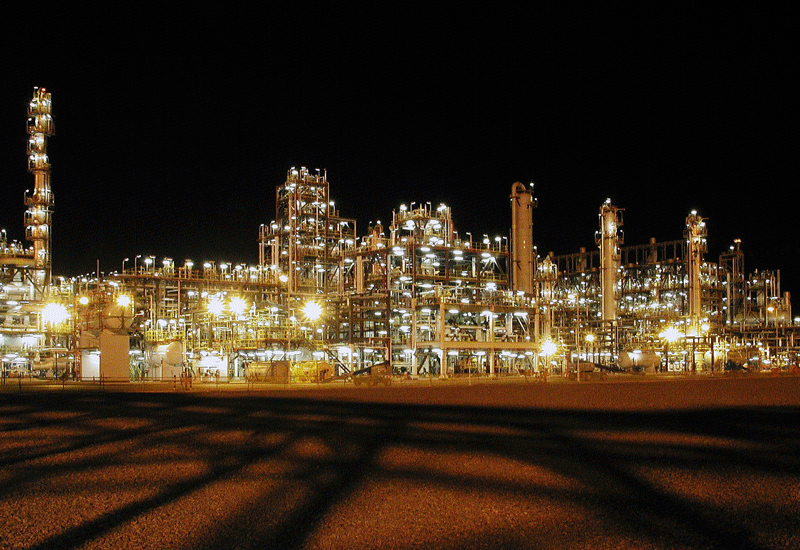The UAE’s Dominance in Global Oil Reserves
The United Arab Emirates (UAE), renowned for its towering skyscrapers, luxury lifestyle, and vibrant economy, is also a global giant when it comes to oil production. With some of the largest proven oil reserves in the world, the UAE has cemented its place as a key player in the global energy market. Among the seven emirates that make up the country, Abu Dhabi stands out as the backbone of this oil-rich nation, contributing a substantial portion of the UAE’s oil output. The UAE’s oil reserves are not only a source of national wealth but have also played a pivotal role in shaping the geopolitical landscape, with far-reaching implications for the global economy.
The UAE’s Oil Reserves: A Key to Economic Prosperity
The UAE is home to approximately 98 billion barrels of proven oil reserves, making it one of the top 10 countries in the world for oil. A vast majority of this oil is located in Abu Dhabi, which holds around 90% of the country’s total reserves. This abundance of oil has allowed the UAE to become one of the wealthiest nations in the world, with the government utilizing oil revenues to fuel extensive infrastructure projects, diversify the economy, and elevate the standard of living for its citizens.
Oil production in Abu Dhabi is not just a business; it is deeply embedded in the identity and development of the UAE. The emirate’s oil fields, including the giant Zakum oil field, have been instrumental in meeting the energy demands of the global market. As of recent estimates, the UAE exports over 3 million barrels of oil per day, making it one of the largest oil exporters worldwide.

The Role of Abu Dhabi in UAE’s Oil Industry
Abu Dhabi’s pivotal role in the UAE’s oil industry cannot be overstated. As the capital of the UAE, Abu Dhabi is the largest emirate, both in terms of land area and oil reserves. The emirate is home to the majority of the UAE’s oil production facilities, including state-owned Abu Dhabi National Oil Company (ADNOC), which oversees the exploration, production, and distribution of the emirate’s oil resources.

ADNOC plays a crucial role in managing the UAE’s oil wealth, ensuring sustainable development, and navigating the complexities of the global oil market. The company’s long-term strategies focus on increasing production capacity while embracing new technologies and sustainability initiatives. Through its strategic partnerships with international energy firms, ADNOC has been able to expand its reach globally and maintain its competitive edge in the oil market.
Furthermore, Abu Dhabi has made significant strides in ensuring that oil production is not just about extraction but also about technological innovation. The emirate’s oil fields are at the forefront of implementing advanced technologies, such as enhanced oil recovery (EOR), to maximize extraction rates from mature reservoirs.
Economic Diversification: Beyond Oil
While oil is undoubtedly the backbone of the UAE’s economy, the nation has been astutely working on diversifying its economic activities to reduce reliance on oil in the long term. Under the leadership of the UAE government, several strategic initiatives have been launched to develop non-oil sectors such as tourism, finance, technology, and renewable energy.
The UAE Vision 2021 and the Abu Dhabi Economic Vision 2030 both emphasize sustainability and innovation as key pillars of the country’s future. With the wealth generated from oil revenues, the UAE has invested heavily in projects such as the development of Abu Dhabi’s Masdar City, a global hub for renewable energy, and the expansion of its non-oil industrial sectors. This foresight ensures that the nation remains resilient to fluctuations in global oil prices, which have historically been a major source of economic uncertainty for oil-dependent nations.
Abu Dhabi’s commitment to sustainable development is also evident in its involvement in global environmental initiatives. As one of the world’s leading oil producers, the UAE has shown a keen interest in addressing the environmental impacts of fossil fuels. The country has taken steps to reduce carbon emissions, promote clean energy, and invest in carbon capture technologies to mitigate the environmental footprint of oil production.
Global Influence and Geopolitical Impact
The UAE’s status as a major oil producer grants it significant influence on the global stage, especially in OPEC (Organization of the Petroleum Exporting Countries), where it plays a critical role in shaping global oil policies. As a member of OPEC, the UAE is involved in discussions and decisions that directly affect oil prices, production quotas, and global supply chains. Its oil reserves give it leverage in international relations, and the UAE has used this influence to build strong diplomatic ties with key global powers, including the United States, China, and Russia.
The country’s oil exports are vital to the global energy market, ensuring that countries around the world have access to the energy they need to drive industrialization, transportation, and development. This interconnectedness has allowed the UAE to become a trusted partner for energy security, with many nations relying on its oil to fuel their economies.
The Future of Oil in the UAE: Challenges and Opportunities
Despite its massive oil reserves and wealth, the UAE faces several challenges in maintaining its dominance in the global energy market. One of the most pressing concerns is the global shift towards renewable energy. With growing concerns about climate change and the international push for carbon neutrality, the demand for oil is expected to decline over the coming decades.
In response to this trend, the UAE has been investing heavily in renewable energy projects and has set ambitious goals to become a leader in clean energy. The UAE’s Masdar Initiative, which focuses on sustainable urban development and renewable energy solutions, is just one example of the country’s commitment to a diversified future. The UAE has also hosted global events like the World Future Energy Summit, showcasing its leadership in the renewable energy sector.
Another challenge is the volatility of global oil prices. While the UAE has built a resilient economy, fluctuations in oil prices can still have significant impacts. To mitigate this risk, the UAE continues to diversify its economy, as mentioned earlier, and explore new revenue streams, such as through investments in technology, finance, and tourism.
Conclusion: A Legacy of Strength and Sustainability
The UAE’s oil wealth has played a transformative role in shaping the nation into a global economic powerhouse. Abu Dhabi’s contributions to the UAE’s oil reserves have not only fueled the nation’s growth but have also established the country as a key player in the global energy landscape. However, the UAE’s commitment to economic diversification and sustainability will ensure that its future remains bright, regardless of fluctuations in the global oil market.
As the UAE continues to adapt to the changing global energy landscape, it is clear that the country’s oil reserves will continue to play a central role in its economic prosperity. By balancing the wealth derived from oil with investments in renewable energy, innovation, and infrastructure, the UAE is setting a strong example for other nations seeking to navigate the complexities of a shifting energy economy.
- Abu Dhabi National Oil Company (ADNOC) ADNOC Official Website
- UAE Vision 2021 UAE Vision 2021
- Masdar City Masdar Official Website
You can also read about, 7 Gems of the UAE.















